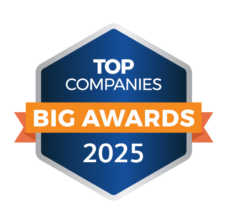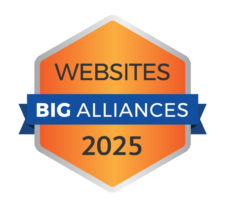Top News
Last Updated: 3/10/25
Top News Headlines
Global Economy & Finance
-
Macroeconomics:
-
Blockchain/Cryptocurrency:
-
Stock Market:
Technology & Innovation
-
Artificial Intelligence
-
Future Technology
-
Cybersecurity
Business & Work
-
Retail
-
Small Business
-
Human Resources
-
Workplace
-
Entrepreneurship
-
Management & Leadership
Top News Summaries
Global Economy & Finance
-
Macroeconomics:
- The US economy is heading for recession. The U.S. economy faces heightened recession risks due to protectionist policies, rising consumer debt, and weakening market confidence. Analysts suggest that increased tariffs, higher credit delinquencies, and economic policy uncertainties could lead to a significant economic slowdown. Read more.
- What a fast-changing world means for your money. Global economic shifts, such as trade realignments and supply chain challenges, are impacting investment strategies and financial stability. This article explores how these changes influence personal wealth and long-term economic trends. Read more.
- Inflation and tariffs might scare shoppers, but have they scared CEOs? Despite rising tariffs and inflation, most major U.S. companies maintain a positive financial outlook. Companies are navigating higher costs through flexible sourcing and pricing strategies without heavily impacting profit margins. Read more.
-
Blockchain/Cryptocurrency:
- Coinbase has acquired the team from a blockchain startup to strengthen privacy and security measures on its Base network. The move aims to improve user privacy while ensuring regulatory compliance. Coinbase plans to integrate the team’s expertise to enhance the network’s infrastructure and privacy technology. Read more.
- 10 women pioneering AI, blockchain, and leadership for Women’s History Month. Forbes highlights ten women making significant strides in AI, blockchain, and leadership, celebrating their contributions during Women’s History Month. These women are shaping industries through innovation, from driving blockchain adoption to advancing AI applications. The recognition aims to inspire more women to lead in the tech space. Read more.
- Blockchain in government expected to reach $791.5B market. The global blockchain market in government services is projected to reach $791.5 billion, driven by increased adoption for transparency, security, and efficiency. Governments are leveraging blockchain for digital identity, record-keeping, and financial transparency, with a sharp increase in demand expected over the next decade. Read more.
-
Stock Market
- Will the stock market crash? Examining the risk factors. U.S. News explores potential risk factors that could trigger a stock market crash, such as high interest rates, geopolitical tensions, and consumer spending slowdowns. Analysts weigh in on economic indicators and historical trends to assess the market’s stability. While no imminent crash is forecasted, the article outlines key elements investors should monitor. Read more.
- Stock markets face uncertainty amid tariffs, job data, and Bitcoin volatility. Global stock markets are experiencing uncertainty as investors react to shifting economic data, new tariffs, and fluctuating cryptocurrency prices. Recent job reports and interest rate concerns have added to market volatility, influencing investor sentiment. Analysts suggest watching economic policies and market trends to navigate the unpredictability. Read more.
- What we’ve learned from 150 years of stock market crashes. Morningstar reflects on major stock market crashes over the past 150 years, highlighting lessons learned from each event. The article emphasizes the importance of long-term investing, diversification, and staying calm during market turbulence. It also explores patterns in market recoveries and how historical insights can guide future investment strategies. Read more.
Technology & Innovation
-
Artificial Intelligence
- Challenges in artificial intelligence: Key issues to address. Telefónica explores the main challenges facing artificial intelligence, including ethical concerns, data privacy, and the need for responsible AI development. The article highlights the importance of transparency, regulation, and human oversight to ensure AI benefits society while minimizing risks. Read more.
- Artificial intelligence may transform weather forecasting. AI is revolutionizing weather forecasting by improving prediction accuracy and response times. Meteorologists are leveraging machine learning to analyze massive datasets, leading to more precise forecasts and earlier warnings for extreme weather events. This advancement could help mitigate the impact of natural disasters. Read more.
- Considerations for artificial intelligence policies in the workplace. Littler examines the growing role of AI in the workplace and the need for companies to establish clear policies. Key considerations include ethical AI use, employee data privacy, and ensuring AI-driven decisions comply with labor laws. Employers are encouraged to implement guidelines that balance innovation with fairness. Read more.
-
Future Technology
- Cyber companies stress AI as core future technology. Leading cybersecurity firms are emphasizing artificial intelligence as a fundamental part of their future strategies. AI is being integrated to enhance threat detection, automate responses, and improve overall cybersecurity defenses. Industry leaders highlight AI’s role in staying ahead of evolving cyber threats. Read more.
- Can innovation be ethical? Why responsible tech is essential. Entrepreneur explores the balance between technological innovation and ethical responsibility, emphasizing the need for transparency, accountability, and inclusivity in tech development. The article argues that ethical innovation not only builds trust but also ensures long-term sustainability in the industry. Read more.
- Building the quantum technology supply chain of the future. IndustryWeek examines efforts to establish a strong supply chain for quantum technology, a field poised to revolutionize computing, security, and materials science. The article highlights collaboration between manufacturers, researchers, and policymakers to create a resilient infrastructure for quantum advancements. Read more.
-
Cybersecurity
- Cisco commits to digital upskilling of 1.5 million EU citizens. Cisco has pledged to enhance digital skills across Europe by training 1.5 million people in cybersecurity, networking, and AI. The initiative aims to bridge the digital skills gap, support workforce development, and strengthen Europe’s digital economy. Read more.
- Top cybersecurity concerns for 2025: Considerations for the C-suite. Forbes highlights key cybersecurity threats businesses must prepare for in 2025, including AI-driven attacks, ransomware evolution, and supply chain vulnerabilities. The article provides insights for executives on proactive security strategies and risk management. Read more.
- How to protect operational technology from targeted cyber attacks. Cyber Security Hub outlines best practices for securing operational technology (OT) systems against growing cyber threats. The article emphasizes network segmentation, real-time monitoring, and employee training as critical defense measures for industrial and critical infrastructure sectors. Read more.
Business & Work
-
Retail
- L’Oréal CEO plays down the impact of US tariffs, says he’s not overly concerned. L’Oréal’s CEO reassures investors that new US tariffs will have minimal impact on the company’s business. He emphasizes the brand’s resilience, pricing strategies, and global supply chain as key factors in mitigating economic challenges. Read more.
- Retail layoffs surge as retailers adjust to mounting economic and profitability pressures. Retailers across the US are implementing significant layoffs to address rising operational costs and shifting consumer spending habits. Analysts warn that economic uncertainty and declining profitability are forcing companies to streamline operations and rethink their workforce strategies. Read more.
- Retailers are pushing payment modernization as customers ask for more. Retailers are accelerating efforts to modernize payment options in response to customer demand for faster, more flexible transactions. Innovations such as digital wallets, buy-now-pay-later services, and biometric authentication are shaping the future of retail payments. Read more.
-
Small Business
- Small business uncertainty rises as owners face economic pressures. Small business owners in the U.S. are increasingly uncertain about the future, citing concerns over inflation, supply chain disruptions, and labor costs. A new NFIB report highlights declining optimism and challenges in maintaining profitability amid shifting economic conditions. Read more.
- These free classes can help you start a small business. Aspiring entrepreneurs can access free classes designed to provide guidance on launching and managing a small business. Covering topics like business planning, marketing, and financial management, these programs aim to equip new business owners with essential skills. Read more.
- Small businesses brace for impact as tariffs hit key industries. New tariffs on Canadian imports, including seafood and raw materials, are putting pressure on small businesses reliant on these goods. U.S. oyster farmers and other small-scale industries worry about rising costs and supply chain disruptions affecting their operations. Read more.
-
Human Resources
- 11 ways HR managers can build a comprehensive benefits package across borders. HR leaders face unique challenges when designing benefits for global teams. This guide outlines key strategies, including localized health coverage, flexible work arrangements, and compliance with regional labor laws, to ensure employees worldwide receive equitable support. Read more.
- Gen AI is changing work, but it can’t replace workers, this HR expert says. While generative AI is transforming workplace efficiency, HR professionals emphasize that it cannot fully replace human employees. The technology is best used as a tool to enhance productivity, streamline tasks, and support decision-making rather than eliminate jobs. Read more.
- 5 HR predictions for the future of work. HR experts forecast major shifts in workplace trends, including AI-driven recruitment, evolving remote work policies, and a stronger focus on employee well-being. These insights highlight how HR departments must adapt to meet the changing needs of a modern workforce. Read more.
-
Workplace
- Don’t bring employees back to the 2019 workplace. Workplaces have evolved, and forcing employees back into outdated office models can hurt retention and productivity. Experts suggest that companies should embrace flexibility, hybrid work, and modern employee expectations to stay competitive. Read more.
- Why empathy is essential for workplace success. Empathy is becoming a critical skill in leadership and teamwork, fostering better collaboration, trust, and innovation. Companies that prioritize emotional intelligence see stronger employee engagement and improved performance. Read more.
- Cure a toxic workplace with core values. Toxic workplaces can drain productivity and morale, but reinforcing core values can help reset company culture. Leaders must define and uphold these values consistently to create a positive, purpose-driven work environment. Read more.
.
-
Entrepreneurship
- A strategic playbook for entrepreneurs: 4 paths to success. Entrepreneurs can follow four key strategies—bootstrapping, venture funding, corporate partnerships, or acquisitions—to build successful businesses. Choosing the right path depends on market conditions, business goals, and risk tolerance. Read more.
- How 4 women started multimillion-dollar businesses after 40. Age is no barrier to success—four women share how they launched thriving businesses later in life, proving that experience and perseverance can be powerful entrepreneurial tools. Read more.
- More than money: The life skills teens gain from being an entrepreneur. Beyond financial rewards, entrepreneurship teaches teens essential life skills like problem-solving, resilience, and leadership, preparing them for future success. Read more.
-
Management & Leadership
- Mending the ‘broken rung’: Reimagining talent management and leadership. Companies must address the “broken rung” in leadership pipelines by creating equitable opportunities for career growth, particularly for underrepresented employees. Read more.
- The pandemic proved that remote leadership works. Remote leadership has proven effective, challenging traditional management models and highlighting the need for trust, flexibility, and digital collaboration skills. Read more.
- How mindful leadership works. Mindful leadership fosters focus, emotional intelligence, and resilience, helping leaders navigate challenges and create a positive workplace culture. Read more.



